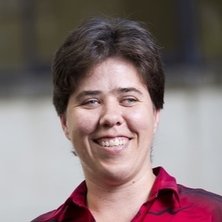From conspiracy to extremism: Biased thinking and social influence in a post-truth world (ONI grant administered by Flinders University) (2024-2027)
Abstract
Mis/disinformation and conspiracies (misbeliefs) are encountered by people, who vary in their cognitive capacity to resist false or misleading information. Misbeliefs are also easy to share online and become forces for social and political change precisely when they are taken up by entire communities, providing a basis for ideologically extreme, reactionary or illiberal movements. Using cutting-edge experimental, natural language processing and agent-based simulations, this project aims to identify the social and psychological drivers of acceptance vs rejection of misbeliefs; and isolate the role of misbelief in the formation of extreme movements based on false narratives. Expected outcomes include empirically validated advances in relevant theories and methodologies to inform new, evidence-based approaches to disrupt malign influences, addressing the pressing human/behavioural, data analytic and situational awareness challenges of the Defence and National Intelligence Community.

